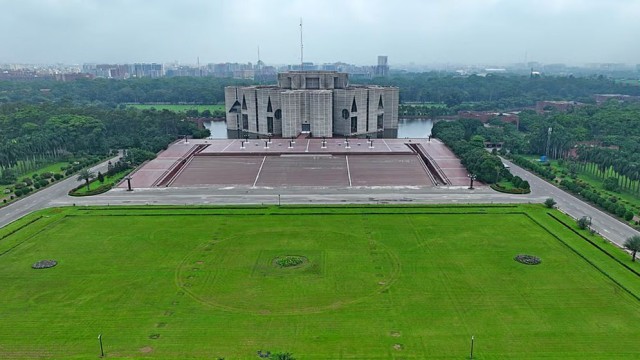Over the past year, Bangladesh experienced 57 additional days of extreme heat due to climate change, totaling 76 days of such conditions from May 15, 2023, to May 15, 2024. This heat is significantly higher than the 90% threshold of local temperatures recorded over a 30-year period, according to a report. Without the influence of climate change, the country would have only faced 19 days of extreme heat.
This dramatic increase in extreme heat days is directly attributed to human-caused climate change, highlighting a four-fold rise. The study, conducted by World Weather Attribution, the Red Cross Red Crescent Climate Centre, and Climate Central, used data from 1991 to 2020 to establish the top 10% temperature range for each country. The report identified 76 extreme heatwaves across 90 countries, affecting billions of people globally, with regions such as South and East Asia and parts of South America being notably impacted.
The findings underscore the urgent need for immediate climate action in Bangladesh, a country already vulnerable to various climate-related challenges. Dr. Muhammad Abul Kalam Mallik, a seasoned meteorologist at the Bangladesh Meteorological Department (BMD), noted that the duration of heatwave days has been increasing over the past decade. A study he co-authored, covering the period from 1990 to 2019, found that regions like Jessore, Chuadanga, Rajshahi, Ishwardi, and Satkhira experience the highest number of heatwave days during the pre-monsoon period.
Dr. Mallik highlighted that April is typically the hottest month in Bangladesh, with the capital, Dhaka, averaging 8.5 heatwave days during the pre-monsoon months. Last April alone, Bangladesh experienced 17 days of heatwaves. A recent BMD report, "Changing Climate of Bangladesh," noted that the country's minimum and maximum temperatures have been rising, with the maximum temperatures increasing more rapidly.
From 2018 to 2022, Bangladesh saw a 0.9°C rise in summer temperatures compared to the 1986-2005 baseline, a rate higher than the global average increase of 0.7°C. According to the 2023 Lancet report "Countdown on Health and Climate Change," only Afghanistan in South Asia experienced a higher temperature rise than Bangladesh.
Expert Insights
Climate expert Dr. Ahmad Kamruzzaman Majumder, chairman of the Department of Environmental Science at Stamford University Bangladesh, indicated that historical data from the Delta Plan shows a temperature increase of slightly over 1°C in the past 30 to 40 years. Recent summers, however, have seen more dramatic heat patterns, with temperatures rising by 2°-5°C in both urban and rural areas. Urbanization has led to reduced reservoirs and greenery, increased vehicular traffic, and higher air conditioning usage, all contributing to this trend.
Dr. Kamruzzaman emphasized that the perceived temperature, which includes humidity effects, can be 5°-10°C higher than the actual temperature, posing significant health risks. He warned that decreasing agricultural land, replaced by urban development, reduces cooling factors and accelerates warming, potentially leading to desertification. He called for collective action, including tree planting and reservoir conservation, to combat land degradation and mitigate rising temperatures.
Previous studies by World Weather Attribution found that human-induced climate change made extreme heat in Bangladesh and other South Asian countries around 30 times more likely and significantly hotter.
Global Context
Globally, extreme heat is one of the deadliest natural hazards, with thousands dying from heat-related causes each year. Human activities, including the burning of coal, oil, and gas, have released enough greenhouse gases to warm the planet by 1.2°C since pre-industrial times, leading to more frequent and intense weather events.
Over the past year, approximately 78% of the global population, or 6.3 billion people, experienced at least 31 days of extreme heat, a situation made at least twice as likely by human-caused climate change. On average, this added 26 days of extreme heat globally over the past year compared to a scenario without global warming.
The year 2023 was Earth's hottest on record, surpassing the previous high set in 2016, with the planet nearly 1.5°C hotter than the pre-industrial average. Some scientists, including former NASA climatologist James Hansen, predict that 2024 could be the first year humanity exceeds the 1.5°C threshold. Experts Chris Smith from the University of Leeds and Robin Lamboll from Imperial College London estimate that to limit global warming to 1.5°C, the world has just six years to achieve net-zero CO2 emissions.































Comment: